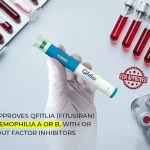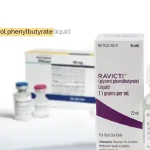Colorectal cancer is one of the most prevalent cancers across the world. It is characterized by abnormal cell growth in the colon or rectum. Early detection through regular screenings, such as colonoscopy, plays an important role in improving treatment outcomes. In the absence of screening, benign polyps may progress to become malignant tumors of the digestive tract. Major symptoms of the disease include changes in bowel habits, rectal bleeding, abdominal discomfort, unexplained weight loss, and fatigue.
Risk Factors and Early Detection:
Raised possible risk factors that increase the chances of someone developing colorectal cancer include age, family history, bowel inflammatory diseases, and poor lifestyle choices such as poor diet and lack of exercise, along with some genetic disorders. One point worth remembering is that detection at an early stage is fundamental for improving survival chances.
Patients undergoing screening for colorectal cancer are at a higher stage of disease-free cancer and therefore have better chances of an effective cure. Patients should talk to their healthcare providers (HCP) to determine appropriate screening schedules based on their risk factors.
Understanding Treatment Options for Colorectal Cancer:
The treatment approach for colorectal cancer depends on various factors, including the stage of the disease, genetic markers, tumor location, and the patient’s overall health. The primary treatment options include:
Surgery (Colectomy):
- Estimated cost: Varies, typically $15,000 – $30,000 (one-time)
- Efficacy: Great for curing early-stage colorectal cancer, which can double as a treatment.
- Eligibility: Early stages of colorectal cancer with tumors that have not spread qualify for this surgery.
- Surgical procedures include colectomy (removal of part or all of the colon), proctectomy (removal of the rectum), and lymph node removal.
Chemotherapy (5-Fluorouracil / 5-FU):
- Estimated cost: $500 – $1,000 (monthly)
- Efficacy: Moderate; commonly used in combination with other treatments
- Eligibility: Stage II-IV colorectal cancer patients Chemotherapy agents like 5-Fluorouracil (5-FU) are effective in treating metastatic and adjuvant settings.
Xeloda (Capecitabine):
- Estimated cost: $2,500 – $3,500 (monthly)
- Efficacy: Comparable to intravenous 5-FU, with the convenience of oral administration
- Eligibility: Metastatic colorectal cancer or as adjuvant therapy post-surgery
Lonsurf (Trifluridine/Tipiracil):
- Estimated cost: $10,000 – $12,000 (monthly)
- Efficacy: Modest; used for refractory metastatic colorectal cancer
- Eligibility: Patients treated with prior fluoropyrimidine, oxaliplatin, and irinotecan-based chemotherapy
Advanced and Targeted Therapies: In the fight against colorectal cancer, newer and more targeted therapies have emerged as effective treatment options:
Avastin (Bevacizumab):
- Estimated cost: $5,000 – $10,000 (monthly)
- Efficacy: Improves survival in combination with chemotherapy for metastatic colorectal cancer
- Eligibility: Suitable for metastatic colorectal cancer patients
Zaltrap (Ziv-aflibercept):
- Estimated cost: $8,000 – $10,000 (monthly)
- Efficacy: Improves survival when combined with chemotherapy for metastatic colorectal cancer
- Eligibility: Patients with metastatic colorectal cancer previously treated with oxaliplatin-based therapy
Braftovi (Encorafenib)
- Estimated cost: $13,000 – $15,000 (monthly)
- Efficacy: Effective when combined with cetuximab for BRAF V600E-mutated metastatic colorectal cancer
- Eligibility: Patients with BRAF V600E mutation in metastatic colorectal cancer
Immunotherapy (Opdivo & Keytruda):
- Estimated cost: $10,000 – $15,000 (monthly)
- Efficacy: Highly effective for MSI-H or dMMR tumors
- Eligibility: Metastatic colorectal cancer patients with MSI-H or dMMR biomarkers
Nivolumab (Opdivo) and Pembrolizumab (Keytruda) work for the management of microsatellite instability-high or mismatch repair deficiency colorectal cancers. These immune checkpoint inhibitors function by improving the recognition and destruction of the cancer cells by the immune system.
Vegzelma (Bevacizumab-adcd) (Biosimilar to Avastin):
- Estimated cost: $3,500 – $6,000 (monthly)
- Efficacy: Comparable to Avastin, used in metastatic colorectal cancer treatment
- Eligibility: Suitable for patients who are eligible for Avastin
Emerging and Experimental Treatments: Patients with advanced or refractory colorectal cancer are likely to benefit from new hope due to the plethora of treatments currently in investigation through clinical trials.
Fruzaqla (Fruquintinib):
- Estimated cost: Clinical trial participation typically covers costs
- Efficacy: Limited data, under investigation
- Eligibility: Available in clinical trials for metastatic colorectal cancer
Radiation Therapy:
- Estimated cost: $8,000 – $15,000 (for a course of treatment)
- Efficacy: Effective in shrinking tumors pre-surgery or managing advanced cancer symptoms
- Eligibility: Primarily for rectal cancer or advanced-stage colorectal cancer
Personalized and Targeted Medicine:
The future of colorectal cancer treatment lies in personalized medicine—tailoring therapies based on the tumor’s genetic makeup. Genetic testing for mutations such as KRAS, NRAS, and BRAF can help identify the most effective treatments, including targeted therapies and immunotherapy.
Combination therapies—such as using chemotherapy along with targeted therapies or immunotherapy—are becoming increasingly common, with the aim of improving outcomes by attacking cancer cells from multiple angles.
Cost Considerations for Colorectal Cancer Treatments:
The cost of colorectal cancer treatments varies significantly. Standard treatments like chemotherapy and radiation therapy are generally more affordable, but newer therapies such as targeted therapies and immunotherapy can be quite costly. Biosimilars like Vegzelma offer a cost-effective alternative to traditional biologics like Avastin, making advanced treatments more accessible for patients.
Conclusion: Understanding the Full Range of Treatment Options
Treatment for colorectal cancer has advanced significantly, with numerous options available, including surgery, chemotherapy, radiation therapy, targeted therapies, and immunotherapy. With ongoing research and the development of newer medications, patients have access to better treatments, offering hope for long-term remission or even a cure in some cases.
For those who are in need of colorectal cancer treatments that are unavailable or unapproved in their local countries, trusted importers like the Indian Pharma Network (IPN) can help facilitate legal access to the best-quality essential medicines sourced from USA and Europe.
Access Colorectal Cancer Treatments Today:
If you’re a patient, hospitals, or clinician and looking for colorectal cancer medicines, especially those not approved or available in your country (due to supply issues), you can obtain them via Indian Pharma Network (IPN). Treatment Options Available:
- Opdivo
- Lonsurf
- Keytruda
- Cyramza
- Xeloda
- Braftovi
- Vegzelma
- Fruzaqla
- Zaltrap
How Indian Pharma Network (IPN) Works?
- Make an enquiry: Choose the medicine, upload your prescription, and receive a response within 24 hours.
- Breeze through paperwork: We’ll guide you on the required documentation for importing unapproved medicines.
- Get a personalized quote: Receive a quote for medicine, shipping, and import fees.
- Receive your medicine: Accept the quote, and we’ll handle sourcing and safe delivery.






